Lemon Grass is an herb largely popolar for its citrus flavour with a trace of ginger. It is widely used in cooking served to spice various Asian cuisines from Thai to Filipino dishes. Lemon grass is not only good for flavouring but it has been tradtitionally used as herbal medicine to treat various medical condition. Read on to discover the amazing uses of this lowly but useful heb.

Lemon grass (Cymbopogon citratus), a native herb from temperate and warm regions such as India, Philippines and Malaysia, is widely used in Asian cooking and is an ingredient in many Thai and Vietnamese foods. Lemon grass use in cooking has become popular in the Caribbean and in the United States for its aromatic citrus flavor with a trace of ginger.
Lemon grass is a member of a specie of grass that grows to as high as 1 meter with leaves of 1 to 1.5 centimeters in width that grows from a stalk of about 30 to 80 cm long with bulbous lower end. Lemon grass is a perennial and tufted grass that is commercially cultivated in Southeast Asian countries such as Thailand, Malaysia and China. Lemon grass is also cultivated in United States specifically in California and Florida. Propagation is by dividing the root clumps.
Lemon grass oil is extracted by steam distillation. Lemongrass oil has a lemony, sweet smell and is dark yellow to amber and reddish in color, with a watery viscosity. It is also known as 'choomana poolu' and is also referred to as 'Indian Verbena' or 'Indian M`elissa oil'. Lemon grass oil is a valuable ingredient in cosmetics, perfumes and as fragrances for soaps and insect repellant's.
Lemongrass is reportedly has a wide variety of therapeutic application and helath benefits. With limited research and studies conducted on humans, Lemon grass' effectiveness is based mainly on the results from animal and laboratory studies as well as its reputation as a folk remedy.
Lemon grass as herbal Tea: (Taken 1 cup every 8 hours)
Lemon grass oil mixed with other essential oils such as coconut oil is used as a liniment for
Lemongrass oil mixed with other essential oils such as lavender or jasmine oil
Lemon grass is used in Indian Ayurvedic medicine to treat fevers and infectious illnesses.
Lemon grass is also used in Chinese medicine to treat colds and rheumatism..
To treat circulatory disorders, some authorities recommend rubbing a few drops of lemongrass oil on the skin of affected areas; it is believed to work by improving blood flow.
Lemongrass has natural anti-microbial properties, is an antiseptic, suitable for use on various types of skin infections, usually as a wash or compress, and is especially effective on ringworm, infected sores. Acne and athlete's foot
Lemongrass is effective in killing cancer cells.
It is useful with respiratory infections such as sore throats, laryngitis and fever and helps prevent spreading of infectious diseases.
Lemon grass is also used as an insect repellant. It helps to keep pets clean of fleas, ticks and lice.
In Asia and Africa, Lemongrass is used as antiseptic, antitussive, and anti-rheumatic and to treat backache, sprains, and hemoptysis. Infusions of its leaves are used in alternative medicine as sedative, antimicrobial, and anti-inflammatory.
In some African countries, it is used to treat diabetes
A study done in the Department of Biochemistry, Faculty of Medicine, Chiang Mai University, Thailand found that Lemon grass (Cymbopogon citratus Stapf) possess antimutagenic properties towards chemical-induced mutation in Salmonella typhimurium strains TA98 and TA100. Mutagenicity of AFB1, Trp-P-1, Trp-P-2, Glu-P-1, Glu-P-2, IQ, MNNG and AF-2, was inhibited by the extract of lemon grass in a dose-dependent manner, but no effect was found on the mutagenic activity of benzo[a]pyrene. Source: Mutation Research - Genetic Toxicology and Environmental (Nov 1994)
In the present study, lemon grass essential oil was evaluated for its in vivo topical and oral anti-inflammatory effects, and for its in vitro antifungal activity using both liquid and vapor phases
Lemon grass oil extract exhibited promising antifungal effect against Candida albicans, C. tropicalis, and Aspergillus nige. In addition, topical application of LGEO in vivo resulted in a potent anti-inflammatory effect, as demonstrated by using the mouse model of croton oil-induced ear edema. Source: Libyan Journal of Medicine (Sept 2014)
The aims of this study were to investigate the antibacterial activity of lemongrass oil (LG) and its major components which were citral, geraniol and myrcene, against four strains of clinically isolated bovine mastitis pathogens, including Staphylococcus aureus, The results demonstrate that S. agalactiae and B. cereus are more susceptible to Lemon grass, citral and geraniol than S. aureus and E. coli. Moreover, they also inhibit S. aureus biofilm formation and exhibit effective killing activities on preformed biofilms. The Lemon grass appears to have multiple targets in the bacterial cell, depending on concentration used as well as the amount of its components. Source: Research in Veterinary Science ( Dec 2011)
In the present study, polysaccharides from C. citratus were extracted and fractionated by anion exchange and gel filtration chromatography. Using these polysaccharide fractions F1 and F2, anti-inflammatory and anticancer activities were evaluated against cancer cells in vitro and the mechanism of action of the polysaccharides in inducing apoptosis in cancer cells via intrinsic pathway was also proposed. These polysaccharide fractions exhibited potential cytotoxic and apoptotic effects on carcinoma cells, and they induced apoptosis in these cells through the events of up-regulation of caspase 3, down-regulation of bcl-2 family genes followed by cytochrome c release. Source: Carbohydrate Polymers – Journal (Jul 2014)
The link between lemongrass and cholesterol was investigated by researchers from the Department of Nutritional Sciences, University of Wisconsin, who published their findings in the medical journal Lipids in 1989. They conducted a clinical trial involving 22 people with high cholesterol who took 140-mg capsules of lemongrass oil daily. While cholesterol levels were only slightly affected in some of the participants--cholesterol was lowered from 310 to 294 on average--other people in the study experienced a significant decrease in blood fats. The latter group, characterized as responders, experienced a 25-point drop in cholesterol after one month, and this positive trend continued over the course of the short study. After three months, cholesterol levels among the responders had decreased by a significant 38 points. Once the responders stopped taking lemongrass, their cholesterol returned to previous levels. It should be noted that this study did not involve a placebo group, which is usually used to help measure the effects of the agent being studied (in this case, lemongrass oil).
Neurobehavioral Effects : (1) Study of myrcene in rats suggests anxiolytic activity. (2) Study of essential oil produced marked CNS depression in mice, similar to chlorpromazine effect. Also, it increased sleepness time, similar to a thiopental effect.
Antinociceptive / Analgesic : Myrcene extract from the essential oil has been shown to have an antinociceptive effect.
Antitumoral : (1) Study showed a-myrcene possess antimutagenic activity in mammary cells. (2) Plant compounds, a-limonene and geraniol showed inhibition of liver and intestinal mucous membrane cancer in mice. (3) Study in Thailand showed inhibition of colorectal neoplasia in mice. (4) Study showed inhibitory effects on early phase hepatocarcinogenesis in rats after initiation with diethylnitrosamine.
 Lemon grass is a type of seaweed readily found in most health foods stores. Lemon grass comes in various forms, such as dried powder, sheets, noodles and even in capsule and tablet forms.
Lemon grass is a type of seaweed readily found in most health foods stores. Lemon grass comes in various forms, such as dried powder, sheets, noodles and even in capsule and tablet forms.
Lemon grass
is available in online stores such ebay and amazon such as Organic Lemon grass Power, 1-pound Bags
- Pound or cut about 10 leaves of lemon grass
- Then add in 2 cups of boiling water for 10 to 15 minutes,
- Strain, add sugar and a slice of ginger to taste.
- Let it cool and drink a cup three to four times a day.
- Make new lemon grass herbal tea as needed.
When symptoms persist or irritation occurs stop the use and consult your doctor.
Lemon grass oil (food grade) can also be used to make tea by diluting 2 teaspoon of lemon grass oil to a cup of boiling water.
- Boil equal amounts of chopped leaves and roots with freshly made coconut oil
- You can also mix 2 drops of Lemon grass oil to an ounce of your usual oil used such as coconut oil, olive oil, etc.
Chop about a cup of lemon grass leaves to a liter of water. Let it boil and strain. You can add it to your bath or you can use it as herbal compress for skin infections.
Lemon grass oil can also be added to a bath or warm water for hot compress. a tablespoon of oil for every 500ml for compress is suggested.
When cooked and properly prepared, eating Lemon grass has been proven beneficial even for young children, pregnant women and breast feeding mothers.
Lemongrass is not known to be harmful when taken in recommended dosages. However, individuals should always take caution before using any treatment. The essential oil should not be used internally by children, women who are pregnant or breast-feeding, or people with liver or kidney disease. When used for various medication, There are reports of the following
While Lemongrass is not known to have an adverse effect with known drugs and supplements. Nonetheless It is advisable to limit the use of Lemongrass for the following medical conditions
In rare cases, lemongrass essential oil has caused allergic reactions when applied to the skin. To minimize skin irritation, dilute the oil in a carrier oil such as safflower or sunflower seed oil before application. As with all essential oils, small amounts should be used, and only for a limited time.
Avoid getting lemongrass (herb or oil) in the eyes.
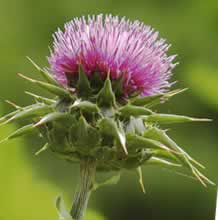 Silymarin extract still tops in liver protection
Silymarin extract still tops in liver protection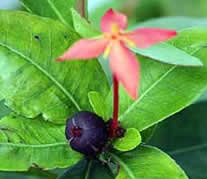 Santan Flower has wound healing properties
Santan Flower has wound healing properties 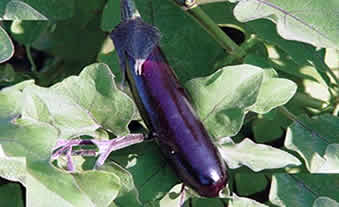 Antioxidant properties from Talong
Antioxidant properties from Talong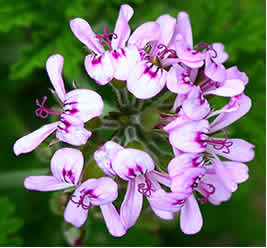 Malvarosa Plant found to have antioxidant properties
Malvarosa Plant found to have antioxidant properties Anti-cancer properties of Avocado fruit
Anti-cancer properties of Avocado fruit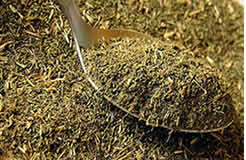 Stevia use can cause cancer, studies suggests
Stevia use can cause cancer, studies suggestsArticle last reviewed: Alexiz Malelo / 10.18.2016